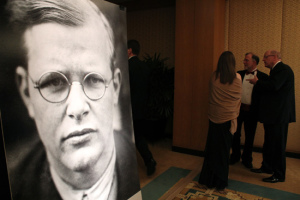What Sabbath rest really means

The requirement for Israel of specific times and rituals for worship, both weekly and annually, established a fundamental principle for God’s people that did not end with Israel.
God’s creation of these worship days and festivals was not arbitrary; rather, in establishing these days, God clearly articulated their purpose. For example, when God founded the annual Passover observance, he proclaimed, “This day shall be for you a memorial day, and you shall keep it as a feast to the Lord; throughout your generations, as a statue forever, you shall keep it as a feast” (Exod 12:14).
In calling this feast a “memorial,” God meant more than simply a passive remembrance of the first event of Passover; this is clear by the fact that the Hebrews were meant, not merely to recount the event of the first Passover, but to actually reenact the event. In so doing, the people of Israel for generations to come would not only remember the facts of the Exodus from Egypt, they would be formed by the event as if they had been there themselves as a means to renew their covenant with God. God explains this later in verse 24 of Exodus 12: “You shall observe this rite as a statute for you and for your sons forever. And when you come to the land that the Lord will give you, as he has promised, you shall keep this service. And when your children say to you, ‘What do you mean by this service?’ you shall say, ‘It is the sacrifice of the Lord’s Passover, for he passed over the houses of the people of Israel in Egypt, when he struck the Egyptians but spared our houses.’ And the people bowed their heads and worshiped.”
God uses the same root word when he commands, “Remember the Sabbath day, to keep it holy. Six days you shall labor, and do all your work, but the seventh day is a Sabbath to the Lord your God” (Exod 20:8–9).
God intended this weekly “memorial” to reenact his own rest on the seventh day of creation: “For in six days the Lord made the heaven and earth, the sea, and all that is in them, and rested on the seventh day. Therefore the LORD blessed the Sabbath day and made it holy” (v. 11). “Rest” for God at the end of creation week did not indicate a ceasing from work, for he continually “upholds the universe by the word of his power” (Heb 1:3). Rather, God ceased his active creative work ex nihilo and took pleasure in the good things he had made. In the same way, God wanted his people to “rest” in him, communing with him as he had always intended. By establishing this weekly routine for his people, God was ensuring that they would regularly renew their covenant with him (Exod 31:12–17), enjoy communion with him, and be set apart for him alone.
This principle of memorial applied to every Sabbath and to each of the holy days, festivals, and solemn assemblies of worship in Israel, revealing the power of corporate worship to form both the people’s theology and their worldview—their religion. This principle applies equally to Christian worship as well.
Scott Aniol, PhD, is an author, speaker, and teacher of culture, worship, aesthetics, and church ministry philosophy. He is chair of the Worship Ministry Department at Southwestern Baptist Theological Seminary. He founded Religious Affections Ministries and has written several books, the most recent being By the Waters of Babylon: Worship in a Post-Christian Culture. He can be found on Twitter @ScottAniol, and you can listen to his podcast here.




























